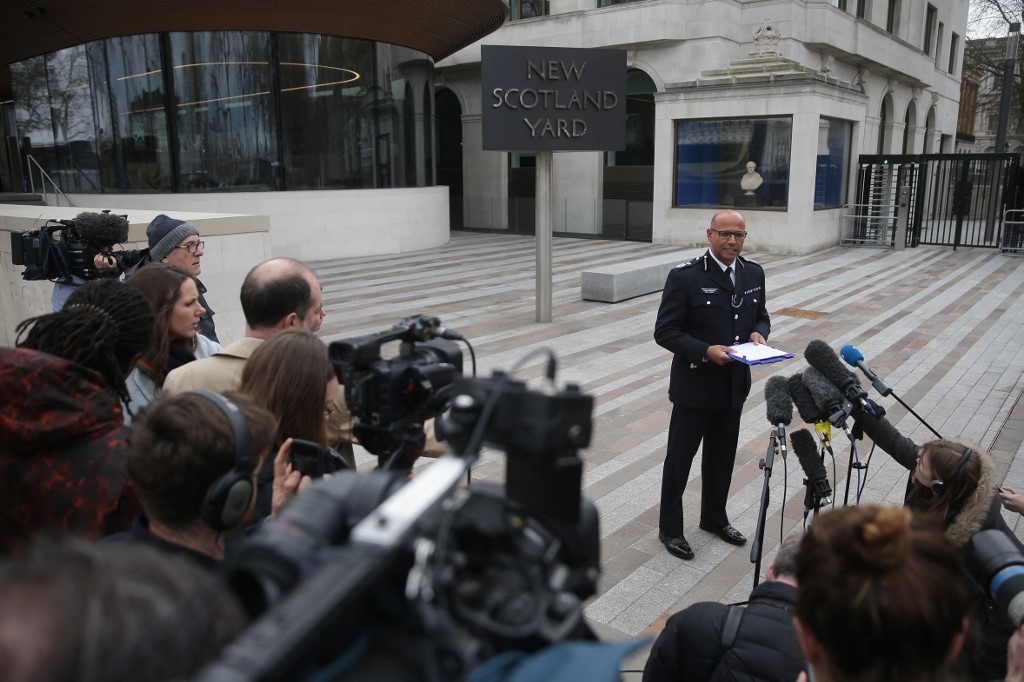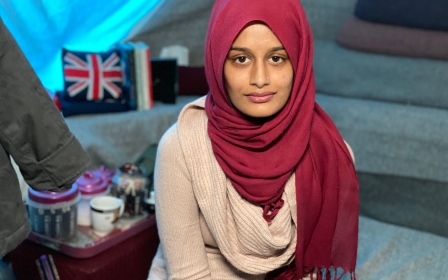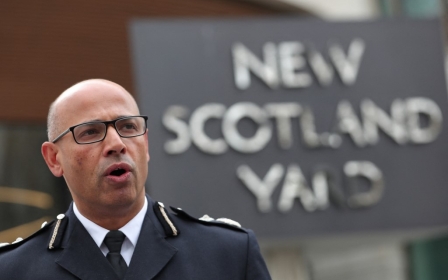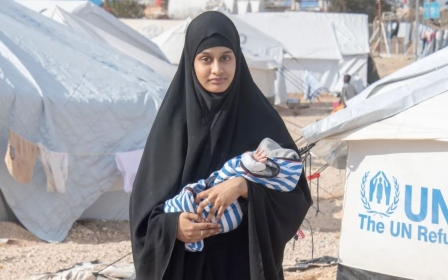UK terrorism watchdog defends journalists' right to refuse police demands

The UK’s independent reviewer of terrorism legislation has expressed concern at the way in which police are using the courts to demand that journalists hand over unused footage of interviews with suspected Islamic State (IS) group members.
In his latest report, Jonathan Hall said that police forces should exercise self-restraint when considering whether to ask the courts to order that such material should be handed over.
Hall’s comments follow three episodes in which the Metropolitan Police asked for footage of interviews with people suspected of committing terrorism offences in Syria.
The Times newspaper, the BBC and broadcaster ITN had resisted requests that they hand over unused material following interviews with Shamima Begum, who travelled from her home in London to IS-controlled Syria in February 2015, when she was aged 15.
Begum’s British citizenship has since been revoked by the UK government, which says she will not be permitted to return.
New MEE newsletter: Jerusalem Dispatch
Sign up to get the latest insights and analysis on Israel-Palestine, alongside Turkey Unpacked and other MEE newsletters
Channel 4 News also contested a Scotland Yard request for unused footage following the broadcast of an interview with James Matthews, a British national and ex-soldier who was arrested on his return to the UK after fighting with the Kurdish People's Protection Units (YPG) against IS. Charges were later dropped.
In the third case, CNN did not contest a request that it hand over unused footage from interviews with Alexander Kotey and El Shafee Elsheikh, two British men alleged to be members of an IS execution squad that became known as "the Beatles".
The courts eventually ruled that in the Begum and Matthews cases, the police applications for production orders were premature, but ruled that the Begum material must be safeguarded so the police could make a fresh request if she does succeed in returning to the UK.
The power relied upon by the police under the UK’s counter-terrorism laws “brings into very sharp focus the frequently opposing interests of the authorities in investigating terrorism and journalists in maintaining the freedom of the press,” Hall reports.
He said that journalistic material rightly enjoyed a higher level of protection than non-journalistic material.
“This reflects the particular role that freedom of expression plays, sometimes described as the ‘lifeblood’ of a democratic society, and the particular need for journalists to be free to go about their work in order to act as 'watchdogs' on behalf of the public interest.
“Moreover, the very fact that terrorism has to do with the secret powers of the state can lead to a certain cultural guardedness on the part of the authorities which means that journalists play a particularly important role in ensuring that issues are brought into the public domain.”
Journalists regard it as a point of duty to resist such orders, Hall said.
“The mere fact that the media refuse to consent immediately to production order applications or show a questioning or sceptical approach is legitimate journalistic behaviour.”
Rather, journalists were concerned that their work could be undermined if they came to be seen as information gatherers on behalf of the state.
“At its extremity, the argument goes, this could lead to journalists, not to mention the local fixers on whom they frequently depend in dangerous parts of the world, being targeted by hostile groups as intelligence-gatherers on behalf of governments."
In exercising self-restraint, Hall says, police would avoid fishing expeditions.
“Self-restraint includes a careful process of reviewing and refining the nature of any application so that it is no wider than necessary, together with consideration of whether the material can be obtained from some other source.”
Hall recommended that all court judgments on applications for journalistic material made under the UK’s counter-terrorism legislation should be published.
Middle East Eye delivers independent and unrivalled coverage and analysis of the Middle East, North Africa and beyond. To learn more about republishing this content and the associated fees, please fill out this form. More about MEE can be found here.




